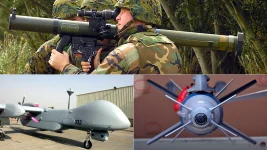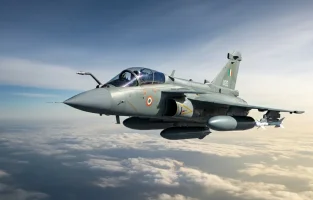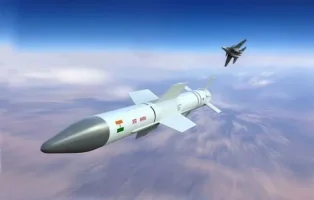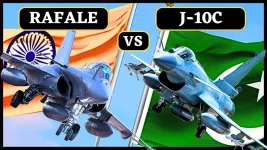- Views: 1K
- Replies: 7
Leading European defence corporations are increasingly selecting India as a premier manufacturing base, a strategic shift driven by significant cost advantages, a highly skilled workforce, and the nation's ambitious "Make in India" policy.
This growing trend is reshaping global defence supply chains and fostering a robust industrial partnership between Europe and India.
This collaboration allows European firms to enhance their competitive edge in international markets by producing high-quality equipment more economically.
Simultaneously, it aligns perfectly with India's national goal of achieving self-reliance in defence production, creating a mutually beneficial ecosystem for innovation and manufacturing.
The Strategic and Economic Drivers
A primary motivator for this shift is the considerable economic advantage India offers.Lower operational and labour costs, compared to those in Europe, allow firms to reduce overall production expenses without compromising on quality. This cost-efficiency enables European companies to offer their advanced defence platforms at more competitive prices on the global market.
Beyond cost, India presents a vast reservoir of talent, including skilled engineers, technicians, and manufacturing professionals. This human capital, combined with rapidly improving industrial infrastructure, makes the country an attractive destination.
European firms are tapping into this talent pool, further supported by government initiatives like the establishment of dedicated Defence Industrial Corridors in Uttar Pradesh and Tamil Nadu, which are designed to create a concentrated and supportive manufacturing environment.
Partnering with Indian companies also provides European giants with direct access to one of the world's largest and fastest-growing defence markets.
With India's defence budget for 2025-26 standing at approximately ₹6.81 lakh crore (around $81.7 billion), and a significant portion dedicated to modernisation, these collaborations are key to securing major contracts.
Furthermore, in an era of geopolitical uncertainty and supply chain vulnerabilities, India's stable political landscape and strategic alignment with Western nations position it as a reliable and secure hub for defence manufacturing.
Landmark Collaborations Underscore Deepening Ties
Several high-profile partnerships highlight the strength of this growing trend:- Airbus (France/Spain): In a historic joint venture with Tata Advanced Systems Limited (TASL), Airbus is producing the C295 military transport aircraft. A state-of-the-art final assembly line has been established in Vadodara, Gujarat, where 40 of the 56 aircraft ordered by the Indian Air Force will be built. This project is a milestone, marking the first time a military aircraft will be manufactured and assembled by a private company in India. The first Indian-made C295 is expected to be delivered by September 2026.
- Dassault Aviation (France): As part of its offset obligations for the sale of 36 Rafale fighter jets to India, Dassault has partnered with Indian firms, including TASL. In a significant development, it was recently announced that TASL will manufacture entire fuselage sections for the Rafale in a new facility in Hyderabad, a first outside of France. This deepens the industrial collaboration and integrates Indian manufacturing into the global supply chain for one of the world's most advanced fighter jets.
- Saab (Sweden): The Swedish aerospace and defence company is actively pursuing the contract for 114 new multi-role fighter aircraft for the Indian Air Force with its Gripen-E jet. Saab has proposed an extensive "Make in India" plan that includes full technology transfer and the establishment of a complete production line in the country with Indian partners, aiming to create a hub for both domestic and export markets.
- Other Key Partnerships: French firm Thales has established joint ventures with Bharat Electronics Limited (BEL) and Larsen & Toubro (L&T) to produce sophisticated radar systems, avionics, and electronic warfare suites. Similarly, the European consortium MBDA, a world leader in missile systems, is working with L&T to produce missile components and integrate them into its global supply chain.
The Path Forward
The trend of European defence firms anchoring their manufacturing in India is set to accelerate.The Indian government continues to promote policies that encourage indigenous production and foreign collaboration, such as liberalising foreign direct investment (FDI) in the defence sector.
Initiatives like the Defence Industrial Corridors are attracting significant investment and creating vibrant ecosystems for aerospace and defence manufacturing.
This evolving relationship signifies more than just a manufacturing arrangement; it is a strategic partnership.
For European companies, India is a vital partner for navigating global defence challenges and securing supply chains.
For India, these collaborations are a gateway to acquiring advanced technology, developing its industrial capabilities, and moving up the global value chain from a component supplier to a leader in co-development and innovation.
This synergy is not only strengthening bilateral ties but also fundamentally reshaping the landscape of the global defence industry.





